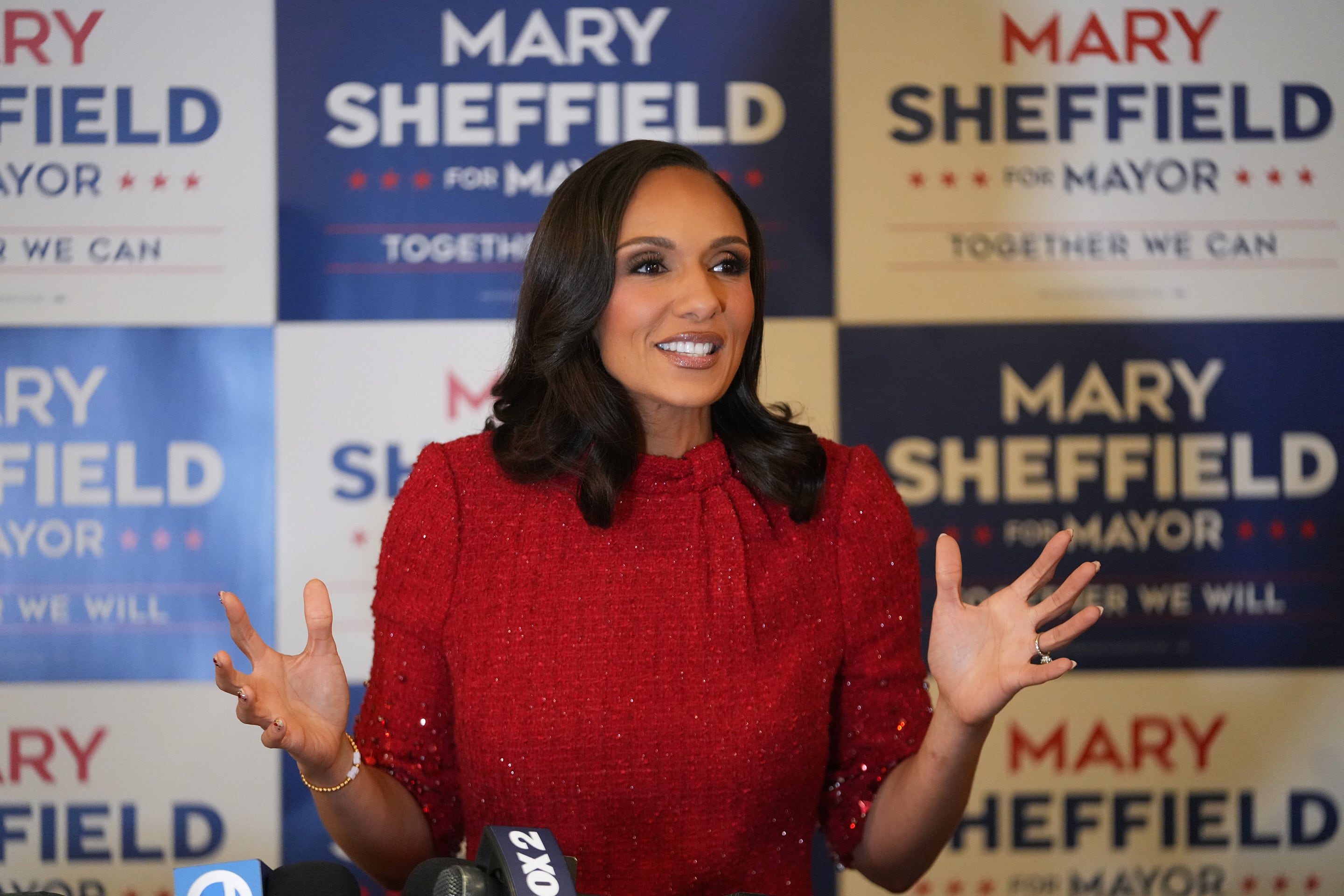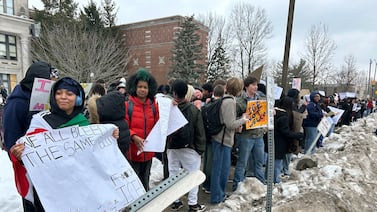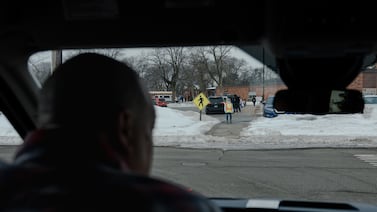Sign up for Chalkbeat Detroit’s free newsletter to keep up with the city’s public school system and Michigan education policy.
Detroit City Council President Mary Sheffield won the race for Detroit mayor by a wide margin Tuesday.
The vote totals were 88,229 for Sheffield and 25,725 for Solomon Kinloch, the pastor at Triumph Church.
Her big win was also historic, with Sheffield becoming the city’s first female mayor.
She referred to the historical significance of her victory during an acceptance speech late Tuesday, noting that in the city’s 324-year history, there have been 75 mayors and “not one of them has been a woman.”
“But tonight, Detroit, we know that changes. And you changed it Detroit,” Sheffield said.
Sheffield will be the city’s first new mayor in about a dozen years. Current Mayor Mike Duggan didn’t run for reelection and instead is running in next year’s governor’s race.
Now that Sheffield has been elected, the attention will turn to whether she’ll deliver on her campaign promises. And for those who care about education in the city, the big question is whether she will be effective in partnering with the city’s schools to improve student outcomes.
Kinloch and Sheffield both said they intended to play a key role in helping address the issues that make it difficult for children to show up for school and learn. Sheffield won the August primary and led polls since then.

The mayor of Detroit doesn’t have any control over the operation of schools in the city but can still have an influence.
Sheffield said Tuesday that her administration will be more involved in education in the city by creating coordinated transportation and investing in after-school programs and wraparound services. The goal, she said, is that every child can succeed.
“We know that when our youth rise, Detroit rises,” Sheffield said.
In interviews with Chalkbeat during the campaign, community leaders and education advocates offered these ideas for what the mayor could do:
Transportation: Many high school students take the city’s public buses to get to and from school. Many students say that the bus system isn’t reliable, buses are often late, and sometimes, buses pass them up. Students have also expressed concerns about safety while waiting at bus stops and on buses. The mayor can work with the Detroit Department of Transportation to improve reliability of bus service, including wait times, address safety concerns, and ensure bus stops are located in areas that are convenient for students.
Housing: Many Detroit families are struggling with housing insecurity, and the number of children experiencing homelessness is on the rise. Two Michigan State University political science professors wrote earlier this year that rising rents in the city are playing a role in housing challenges. About 59% of families with school-aged children are renters in Detroit, according to this fact sheet from Wayne State University researchers. The city has invested a lot in creating affordable housing, but concerns were raised during the campaign that the affordable housing isn’t affordable enough for the average Detroit resident. Meanwhile, evictions can create instability for children attending school.
What can the mayor do? Push for affordable housing that works for families with school-age children, while also ensuring that affordable housing is placed in areas that make it easier for parents to get their children to and from school.
Partnering with schools: The city’s mayor can create a more cohesive education system by bringing district and charter schools together and ensuring students who attend both have access to important resources such as after-school programming.
What Sheffield promised on education
Here’s what Sheffield told Chalkbeat this summer when asked what role the mayor could play:
“I understand my role to be a solutions-oriented advocate on behalf of parents, teachers, students and community members. In my opinion, it does very little good to point fingers or blame entries or people for current issues, especially when many times, whole systems need to be addressed to reach real solutions,” Sheffield said.
“Instead, I will establish deeper collaborative ties with DPSCD first and foremost, acknowledging that a strong school system means a strong Detroit. Everything from Detroit’s public safety to workforce to small business and entrepreneurship have direct ties to our educational system. So as a goal, we will understand the gaps and create solutions together. I am willing to commit significant resources towards improving the areas impacting education that the City of Detroit oversees: Infrastructure, quality of life for students and families, safety, and in some cases, funding advocacy. I will do this in collaboration with residents and with DPSCD partners.”
During an October debate, when confronted with a question about how the mayor can address low academic performance and high rates of chronic absenteeism, Sheffield replied:
“My administration will have a liaison working directly with our DPSCD and charter schools on a consistent basis. We will ensure that we have robust after school programming within a two mile radius of every school, focusing in on literacy. We will provide the wraparound service and address the social deterrents that prevent and impact our families and our students, like mental health and housing and having support in the schools and on the grounds to support our families and students. And lastly, as a mayor, I can ensure that we have safe routes to school and fixing the infrastructure around our schools and providing more coordinated transportation to reduce absenteeism and get our students back in school.”
Lori Higgins is the bureau chief for Chalkbeat Detroit. You can reach her at lhiggins@chalkbeat.org.






